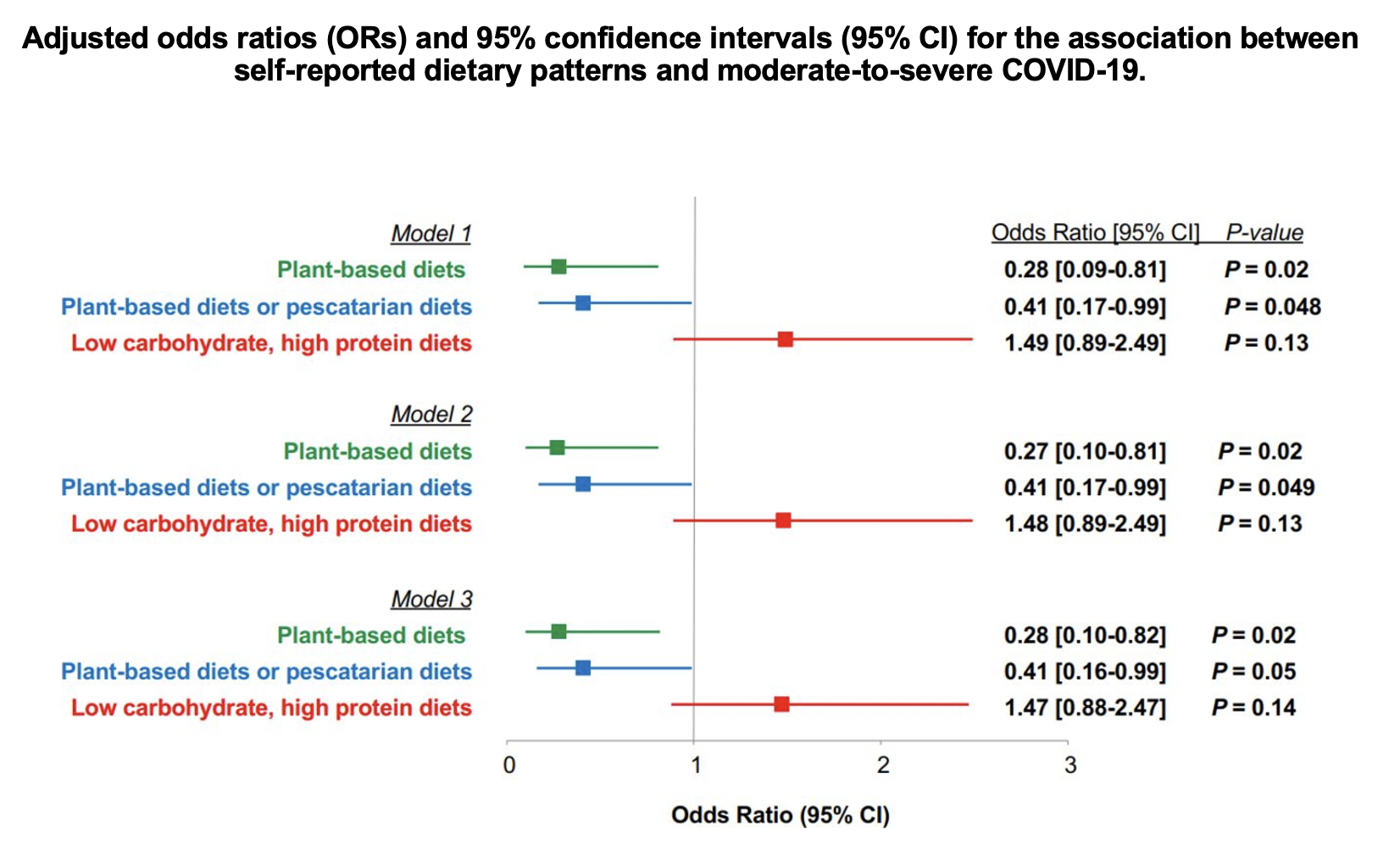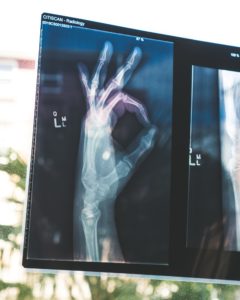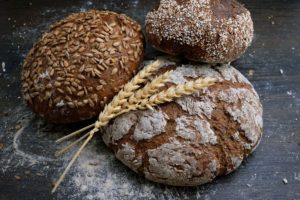Finally, a study that demonstrates the power of plant based diets in fighting COVID-19. Although its results will not be surprising for many of us, it is still great to have additional evidence of the power of plant-based nutrition. The six country study, published in the British Medical Journal (BMJ), concluded that a plant-based diet lowers the chances for hospitalization and death due to COVID-19 by 73%. There are of course no guarantees for any of us, but this is great news. Interestingly, participants who followed a pescatarian diet (only fish, and no meat, dairy, and eggs) reported a reduced risk for moderate to severe symptoms of COVID-19 by 59%. And conversely, those who ate a “low carbohydrate, high protein diet” (much like the Standard American Diet (SAD) which includes meat, dairy, eggs and processed foods) had a 49% increased risk for hospitalization or death due to COVID-19. Wow.
Dr. Kim Williams is a long trusted source on the subject of health and nutrition. He is the former President of the American College of Cardiology and once famously said that “there are two types of cardiologists: vegans, and those who haven’t read the data.” Dr. Williams will no doubt be interested in this data, as he had this to share on the PCRM podcast last July (at the height of the pandemic): “I have several friends who are plant based (people who eat plant based diets), who got COVID, and not one of them has been hospitalized, and certainly none of them have died. And so the question is, and I keep asking around from my friends, does anybody know a plant based person who has actually died of COVID. So far, I have heard of none. Now that’s not a study, but I would love to crowd source that question, and see if, you know, it may not be none, but I bet that it is dramatically lower than the general population and the general outcome.”
There was a recent study that appeared in the Lancet that estimated that 40% of COVID-19 related deaths in the US could have been avoided. We know that the people who are most likely to get sick or die from the coronavirus are those who have chronic illnesses, and that 90% of Americans over the age of 65 have one or more chronic diseases (nearly 80% of chronic illnesses are caused by diet, and to a lesser extent, other lifestyle factors). It has been stunning to see what little attention has been given to the prevention, treatment, and reversal of chronic disease, which is arguably, just as important as social distancing and washing our hands with regards to COVID-19. It remains to be seen whether this study, or the idea of a plant-based diet, perhaps the most powerful tool we have to fight COVID-19, will even be considered or shared by the mainstream media & the healthcare (sick-care) industry. 🙁
I would love to see another study that looked at not just “plant-based diets” but low fat, whole food plant-based diets as well. Although generally much safer and healthier than the Standard American Diet (SAD), not all vegan diets are created equally and some fall short of promoting optimum health (Pepsi Cola and OREO cookies are both considered vegan btw). A whole food plant-based diet on the other hand, removes all of the animal products and processed foods and is the only diet proven to reverse heart disease (the number one killer of Americans), type 2 diabetes and early stage prostate cancer. Wowee. Mic drop? The fact that a whole food plant-based diet still isn’t prescribed to everyone who is burdened with a chronic illness or autoimmune disease is simply outrageous, and inexcusable.
The Bottom Line? This study provides great news (albeit unsurprising for many), and is long overdue. Adopting a plant-based diet is arguably just as important, if not more so, as social distancing and wearing a mask during a pandemic.
And overall, the study’s results offer yet another reason to go plant-based, or at the very least, greatly reduce your meat, dairy and egg consumption. 🙂




